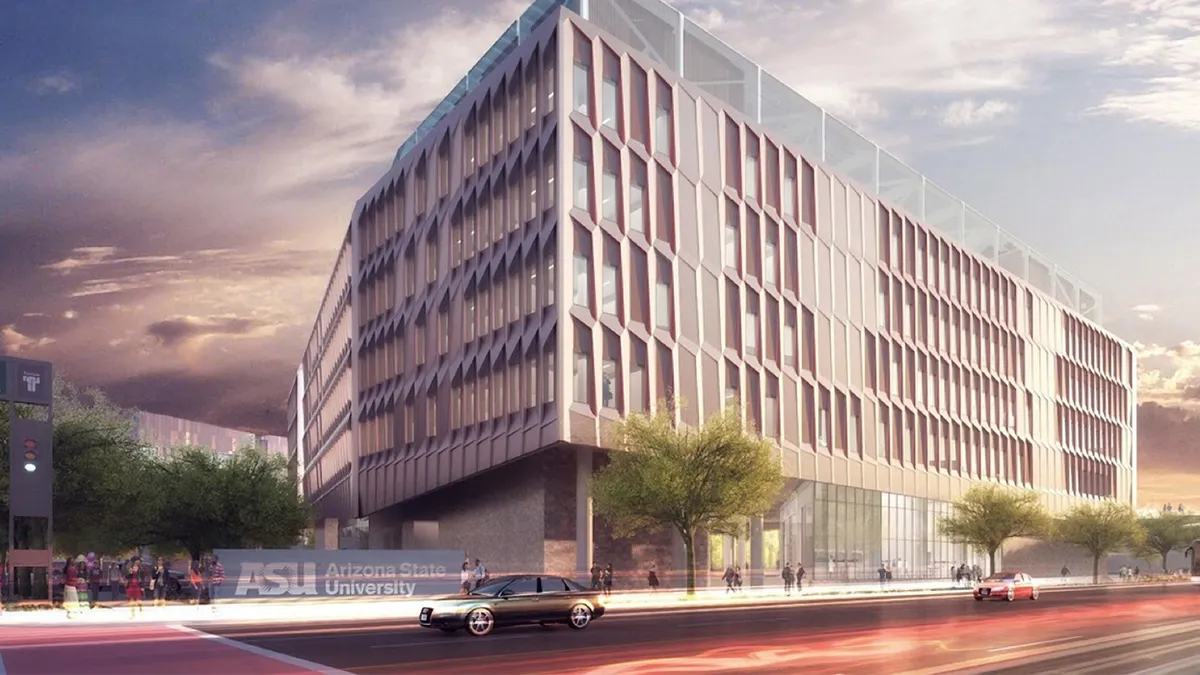Dive Brief:
- Starbucks and Arizona State University will open a research and innovation facility, called the ASU-Starbucks Center for the Future of the People and the Planet, in December 2021 on ASU's campus in Tempe, Arizona, according to a press release.
- The lab will leverage ASU's applied research and on-campus test stores. The center's year-one goals include building out and open-sourcing Starbucks' Greener Stores program and exploring alternative menu items, including plant-based offerings.
- Starbucks has tested ideas that support sustainability in individual stores and markets, but this dedicated lab will enable the company to scale new concepts more quickly and further the company's goals to reduce greenhouse gas emissions.
Dive Insight:
Creating an innovation lab on ASU's campus makes plenty of sense for Starbucks, not just because of its long-term relationship with the university, but also because there are nine licensed Starbucks stores on ASU's four campuses in the Phoenix area that can test and evaluate strategies from the center's research.
Notably, this isn't the first such lab in Starbucks' system. The company opened the Tryer Center in November 2018 at the company's Seattle headquarters, which is used to create and test new products, processes and store design. Within its first six months in operation, more than 130 projects had been developed and tested at the Tryer Center, and dozens were implemented at stores.
The Starbucks-ASU partnership dates back to 2014 with the development of the Starbucks College Achievement Plan. It has since expanded to include the Pathway to Admission, Starbucks Global Academy and its Sustainability Fellowship Program, according to the press release.
Anchoring an innovation center on a college campus also gives Starbucks access to ground-floor research and insight into Gen Z interests before scaling new products or processes to market. Starbucks' Center for the Future of the People and the Planet will be staffed by scientists, researchers and support staff, including subject-matter experts from the coffee chain and ASU.
Other major QSRs have used the same strategy. Wendy's opened a technology innovation center on the Ohio State University campus in 2015, while Chick-fil-A opened an innovation Center on Georgia Tech's campus in 2018.
Innovation centers have also become a popular asset in the restaurant space as the need for agility intensifies to operate in an increasingly fast-paced, digital environment. Domino's opened its "Innovation Garage" in Ann Arbor, Michigan, in 2019, for example, while McDonald's recently created McD Tech Labs in Silicon Valley. Yum Brands plans to open a new innovation lab in Plano, Texas, later this year.









